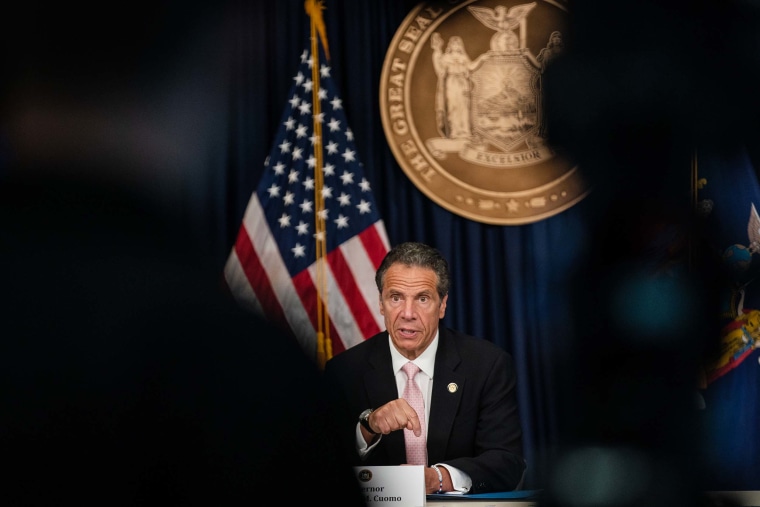Today’s installment of campaign-related news items from across the country.
* Though former Gov. Andrew Cuomo appears interested in a return to politics, an Emerson College poll released yesterday suggests his former constituents disagree: 63 percent of New Yorkers do not believe the Democrat should seek elected office again.
* On a related note, however, the same Emerson poll asked New York Democratic voters about a hypothetical primary in which Cuomo challenged incumbent Gov. Kathy Hochul. The results found Hochul ahead, but not by much: 37 percent to 33 percent.
* Steve Bannon is expanding his media operation, launching a new program that will focus on key state and local races. “We think there’s an opportunity to literally destroy the Democratic Party as it currently exists in the November elections this year,” Bannon told BuzzFeed News.
* In Georgia’s U.S. Senate race, the latest Fox News poll found Herschel Walker far ahead in his Republican primary contest, leading the GOP field with 66 percent support. Georgia Agriculture Commissioner Gary Black was a distant second at 8 percent.
* In Ohio’s Republican gubernatorial primary, the latest Fox News poll found Gov. Mike DeWine ahead, but his support stood at only 50 percent, which isn’t great for an incumbent facing primary rivals. The same survey showed Joe Blystone with 21 percent and Jim Renacci at 18 percent.
* In Pennsylvania’s Republican gubernatorial primary, the latest Fox News poll found a wide-open field with no clear frontrunner: Lou Barletta, Doug Mastriano, Dave White, and Bill McSwain each reached double digits in the survey, but no candidate topped 20 percent support.
* Oklahoma’s Republican U.S. Senate primary is getting quite crowded. The newest candidate is Alex Gray, who served as a staffer on Donald Trump’s White House National Security Council.
* And after a series of failures, Iowa’s first-in-the-nation caucuses may soon be a thing of the past: The Des Moines Register reports that national Democratic Party leaders “have drafted a proposal that could significantly reshape the party’s presidential nominating process.” The draft would reportedly “set new criteria for early-voting states that favor primaries over caucuses and diversity over tradition.”

